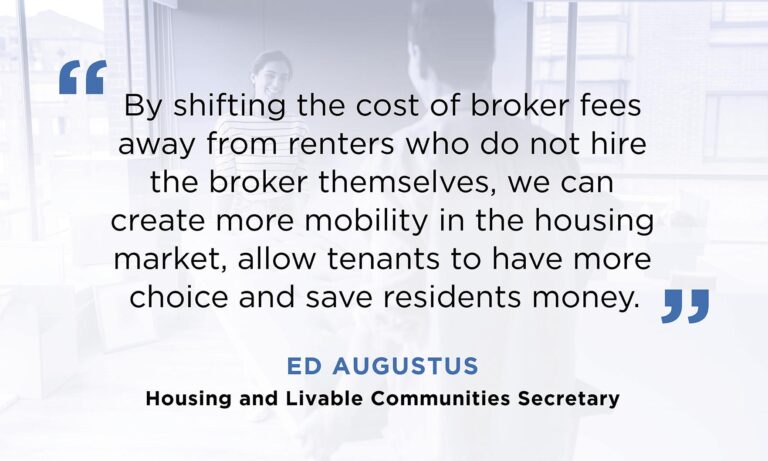A new bill has been introduced at the state level aiming to eliminate broker fees for renters, a move that could significantly reshape the rental housing market. The proposed legislation seeks to relieve tenants from paying costly fees traditionally charged by rental brokers, which advocates say contribute to the already high expenses of securing housing. If passed, the bill would mark a major policy shift intended to increase housing affordability and accessibility for renters across the state.
Table of Contents
- Statewide Legislation Aims to Eliminate Broker Fees for Renters
- Impact on Renters and the Rental Market Explored
- Landlord and Broker Industry Reactions to Proposed Bill
- Policy Recommendations for Fair and Transparent Rental Practices
- The Conclusion
Statewide Legislation Aims to Eliminate Broker Fees for Renters
Lawmakers across the state are rallying behind new legislation designed to overhaul the rental market by banning the practice of broker fees charged to tenants. Advocates argue that these fees, often amounting to one month’s rent or more, place an undue financial burden on renters already grappling with soaring housing costs. If passed, the bill would shift the responsibility of broker fees from tenants to landlords or prohibit such fees entirely, fostering a more equitable rental process.
The proposed law highlights several key objectives:
- Protecting renters from hidden and excessive charges that increase move-in costs.
- Increasing transparency in the rental market by standardizing broker fee practices.
- Encouraging fair competition among property managers and real estate agents to benefit tenants, not just brokers.
Real estate professionals remain divided, with some expressing concerns over how the bill might impact their commissions and service models. Meanwhile, tenant advocacy groups are mobilizing to support swift legislative approval, underscoring the potential for substantial economic relief for millions of renters statewide.
Impact on Renters and the Rental Market Explored
Renters across the state could see immediate financial relief if the proposed legislation takes effect, as it targets the often substantial broker fees that can add hundreds or even thousands of dollars to the cost of securing a rental property. These fees have long been criticized for creating barriers to affordable housing, especially for low- and middle-income tenants. By eliminating broker fees, the bill promises to:
- Increase housing affordability by reducing upfront moving costs
- Improve access to rental units for a broader demographic
- Shift the financial responsibility from renters to property owners or brokers who benefit from the fees
However, the rental market may also experience notable adjustments as brokers and landlords adapt to the new fee structure. Some industry experts warn that landlords might attempt to offset lost broker revenue by raising monthly rents, potentially reshaping the market dynamics. Conversely, proponents argue that the policy could foster greater transparency and competition among rental agents, ultimately benefiting renters in the long run. Observers will be closely monitoring how these shifts impact both rental prices and availability across urban and suburban communities.
Landlord and Broker Industry Reactions to Proposed Bill
Landlords and brokers have voiced a spectrum of opinions in response to the bill, with many expressing concern over its potential impact on the housing market. Landlords caution that banning broker fees could inadvertently shift these costs onto tenants through higher overall rents, straining affordability further. Some argue that the bill could disincentivize brokers from offering their services, reducing market transparency and slowing rental processes. On the other hand, several broker associations are calling for a balanced approach, emphasizing the need to protect renters while ensuring fair compensation for industry professionals.
Key concerns highlighted by industry stakeholders include:
- Potential loss of broker services: Brokers fear a cutback in income may reduce the availability of apartment listings and professional guidance for renters.
- Market adjustments: Landlords might respond by increasing monthly rent or implementing alternative fees.
- Regulatory clarity: Calls for detailed guidelines to prevent unintended consequences and maintain a healthy rental ecosystem.
Despite reservations, some landlords show openness to the bill if coupled with incentives or compensation mechanisms that do not compromise property maintenance and quality standards.
Policy Recommendations for Fair and Transparent Rental Practices
Ensure renter protections by prohibiting broker fees charged directly to tenants. Legislation should mandate that all fees associated with brokerage services fall on landlords or property managers, thereby eliminating unexpected financial burdens for renters. This approach promotes equitable access to housing and prevents discriminatory practices that disproportionately affect low-income applicants.
Additionally, policymakers advocate for increased transparency through:
- Mandatory disclosure of all rental fees and broker charges upfront in advertising and lease agreements.
- Standardized contracts detailing the role and compensation of brokers to protect renters from hidden fees.
- Creation of easily accessible complaint channels and enforcement mechanisms to hold unethical brokers accountable.
The Conclusion
As the proposed statewide bill advances through the legislative process, tenants and housing advocates are closely monitoring its progress, hopeful that eliminating broker fees will make renting more affordable and accessible for millions. Opponents, however, caution about potential impacts on the rental market and landlords’ ability to cover costs. With housing affordability continuing to dominate public discourse, the outcome of this bill could signal a significant shift in how rental transactions are conducted across the state. Lawmakers are expected to hold further hearings in the coming weeks as stakeholders weigh in on the proposal’s merits and implications.

